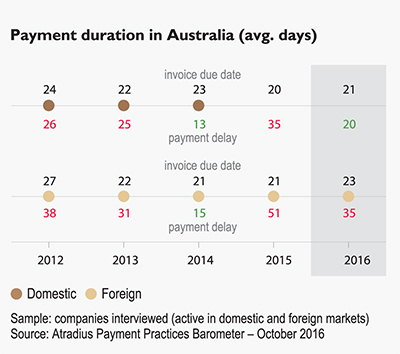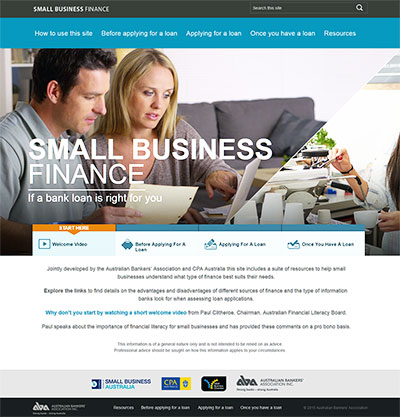THE role of the chief financial officer (CFO) is being morphed and challenged by ‘disruptive forces’ according to a new report by global business advisory group EY – and nowhere is it being felt more powerfully than Australia.
For example, more than 80 percent of Australian and New Zealand CFOs expect to take on more strategic responsibilities -- significantly higher than the global average of 64 percent – and about half these CFOs say they need to build their digital understanding. Yet the report flags concerns by most CFOs that neither they nor their teams currently possess the capabilities this new role will demand, 
Traditional career paths are changing dramatically, with EY’s report showing only 40 percent of CFOs globally are now qualified accountants.
EY’s The DNA of the CFO 2016 report, based on a survey of nearly 800 finance leaders worldwide, found that digital innovation, the proliferation of data, new regulations and increasingly demanding stakeholders are combining to disrupt and reshape the CFO role.
EY Finance Management Consulting leader for Oceania, Donal Graham said finance staff needed to be given access to much broader experience and greater development opportunities to help address worrying skills gaps.
While 82 percent of CFOs surveyed across Australia and New Zealand expected they would be asked to take on wider operational leadership roles, beyond finance, in the coming years, this trend towards increased responsibilities is already evident, with 58 percent of local CFOs surveyed spending more time defining and developing the overall strategy for their company than they did five years ago.
In this environment, it is concerning that 62 percent of local CFOs say the current finance function does not have the right mix of capabilities to meet future strategic priorities (compared with 47 percent globally).
“In EY’s first The DNA of the CFOstudy, conducted in 2010, we painted a picture of a role that had already broadened to encompass not only traditional financial skills, but also more strategic and market-facing responsibilities,” Mr Graham said.
“Six years on, our latest CFO research study has found that change has accelerated even more rapidly than many would have thought possible.
“While this presents an opportunity for CFOs to really shape the contribution they make to the business, it also means that those who don’t proactively redefine their role may be at risk of failing to provide the financial and strategic leadership their organisation needs,” Mr Graham said.
“Australian and New Zealand organisations should be considering more investment and sophistication in the managing of finance talent and matching staff to the right opportunities to help equip them for more demanding and complex roles.”
MORE DATA ACCESS
More than half (54%) of local CFOs surveyed said they are now spending more time providing analysis, such as data-driven analytics and strategic risk assessments, to support the CEO and senior leadership team.
“Finance chiefs are being required to evaluate their organisation’s investment in digital, challenging them to find new metrics to measure business cases and return on investment,” Mr Graham said.
“As they upgrade technology and move to cloud-based systems, finance departments have access to more data than ever before. However, it seems many local finance teams may not yet be particularly well-equipped to interpret this data and draw out insights to help truly inform strategic decisions.
“In fact, 54 percent of Oceania CFOs admit they need to build their own understanding of digital, smart technologies and sophisticated data analytics. So this is clearly an area that requires further focus.”
MANAGING RISK
More than anywhere else in the world, Oceania CFOs believe risk management needs to be more of a priority, with two-thirds (66%) saying this will be a critical finance capability in the future – compared with a global average of 57 percent.
“To some extent, local CFOs are acknowledging they need to catch up. To date, Australia and New Zealand haven’t been subject to the same level of scrutiny around regulation and risk management as many other parts of the world – particularly the US, where the financial crisis placed an intense focus on risk management,” Mr Graham said.
“However, local CFOs are starting to acknowledge that risk management needs to go beyond mere compliance and integrate more fully with the overall business strategy.
“New corporate management technologies are enabling more sophisticated stress testing of business plans and associated risk weighting. CFOs need to be able to leverage those tools to monitor assumptions in the strategic plan, and be ready to pivot the business strategy if the assumptions no longer hold.”
CFO DNA CHANGING
In such a fluid environment, defining the skills and qualities necessary for success as a CFO is a moving target, according to Mr Graham.
“Pinpointing exactly what makes a successful finance leader is becoming increasingly challenging as the role continues to evolve, but it’s fair to say the traditional chartered accounting career development path is insufficient to equip CFOs for the new challenges they are facing,” Mr Graham said.
“In fact, the survey found a marked difference between the career paths of CFOs globally and those in Oceania. Only 40 percent of CFOs surveyed globally had a professional accounting qualification.
“This is in stark comparison to Australia and New Zealand, where the vast majority (88%) hold a professional accounting qualification. In contrast, global CFOs were more than twice as likely as Oceania CFOs to have MBAs.
“The business environment is more complex, interconnected and unpredictable than ever. Digitization, data, stakeholder scrutiny and risk volatility are changing the rules of the game and CFOs, like all leaders, need to adapt to this increasing complexity, focusing on the attributes and skills that their companies will need to succeed in the future,” Mr Graham said.
“Finance leaders should be taking pre-emptive steps to future-proof their role and expand the finance functions capabilities, or run the risk of being marginalized from the senior decision-making circle.
“The most successful CFOs will be those who can proactively shape their role in response to the major forces transforming the business environment.”
EY’s DNA of the CFO report: Do you define your CFO role? Or does it define you? surveyed 769 finance leaders worldwide, including 50 respondents from Australia and New Zealand, between December 2015 and February 2016. The survey results were supplemented by individual interviews with 21 CFOs from leading organisations.
www.ey.com
ends


 How to resolve AdBlock issue?
How to resolve AdBlock issue? 




